Luís Filipe Teófilo
Computer Poker Research at LIACC
Jan 25, 2013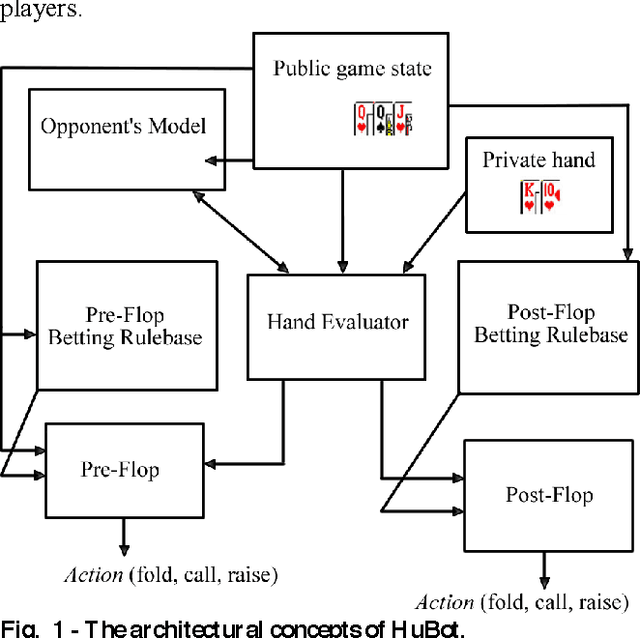
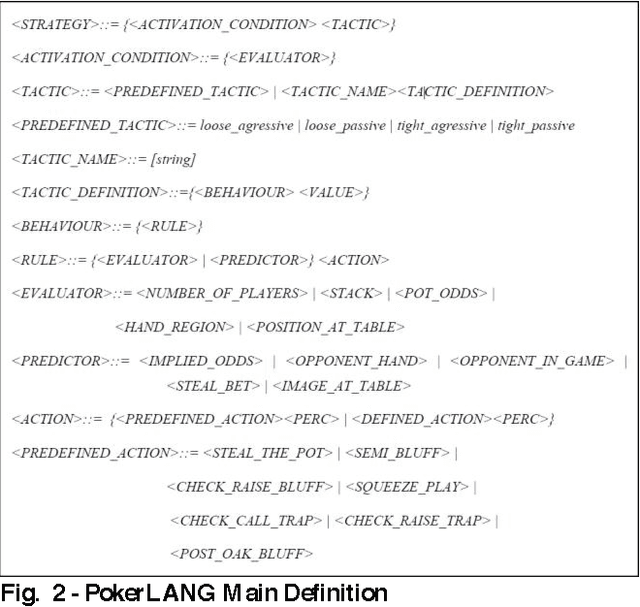
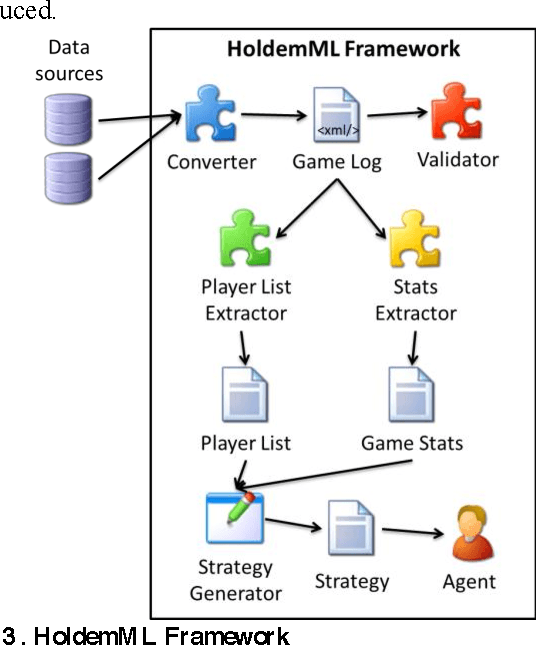
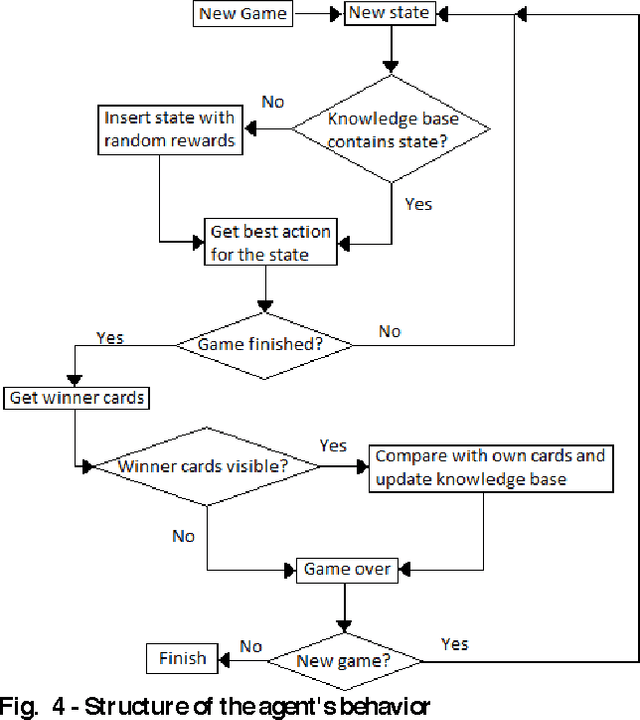
Abstract:Computer Poker's unique characteristics present a well-suited challenge for research in artificial intelligence. For that reason, and due to the Poker's market increase in popularity in Portugal since 2008, several members of LIACC have researched in this field. Several works were published as papers and master theses and more recently a member of LIACC engaged on a research in this area as a Ph.D. thesis in order to develop a more extensive and in-depth work. This paper describes the existing research in LIACC about Computer Poker, with special emphasis on the completed master's theses and plans for future work. This paper means to present a summary of the lab's work to the research community in order to encourage the exchange of ideas with other labs / individuals. LIACC hopes this will improve research in this area so as to reach the goal of creating an agent that surpasses the best human players.
Identifying Playerś Strategies in No Limit Texas Holdém Poker through the Analysis of Individual Moves
Jan 25, 2013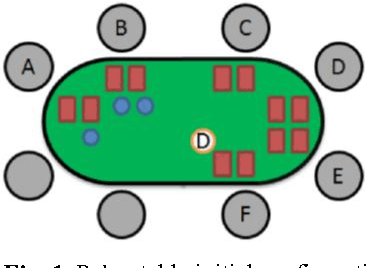

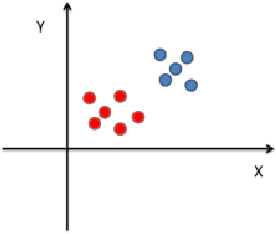
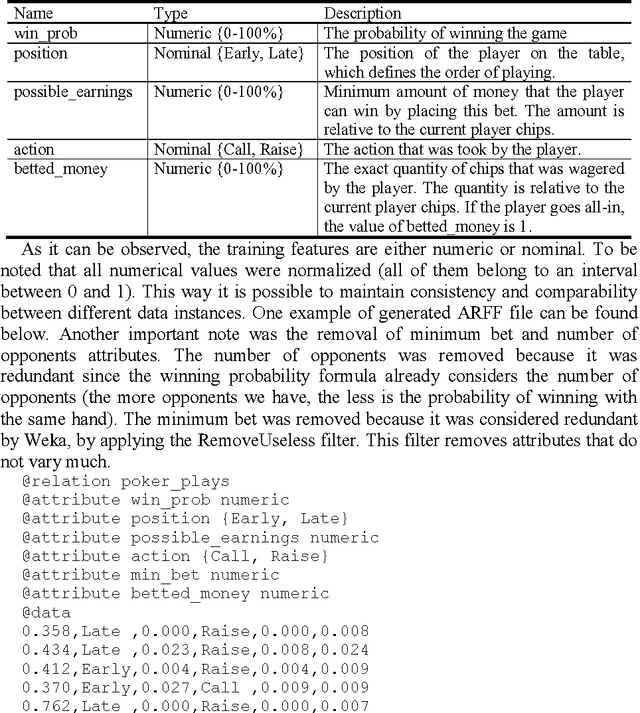
Abstract:The development of competitive artificial Poker playing agents has proven to be a challenge, because agents must deal with unreliable information and deception which make it essential to model the opponents in order to achieve good results. This paper presents a methodology to develop opponent modeling techniques for Poker agents. The approach is based on applying clustering algorithms to a Poker game database in order to identify player types based on their actions. First, common game moves were identified by clustering all players\' moves. Then, player types were defined by calculating the frequency with which the players perform each type of movement. With the given dataset, 7 different types of players were identified with each one having at least one tactic that characterizes him. The identification of player types may improve the overall performance of Poker agents, because it helps the agents to predict the opponent\'s moves, by associating each opponent to a distinct cluster.
 Add to Chrome
Add to Chrome Add to Firefox
Add to Firefox Add to Edge
Add to Edge